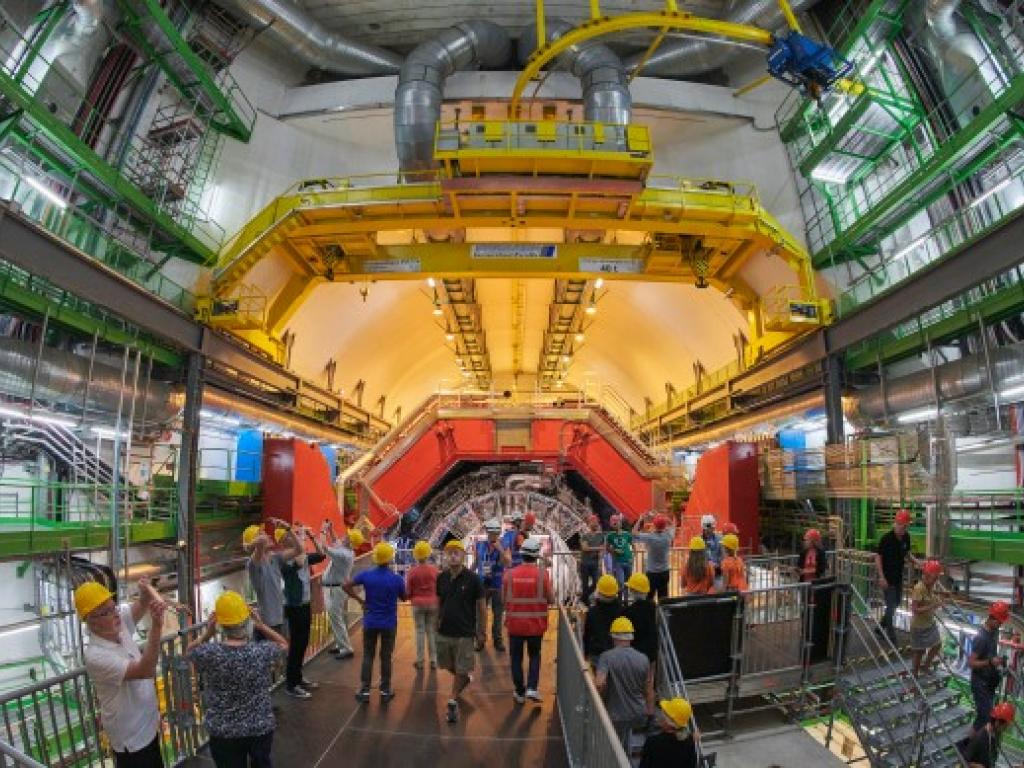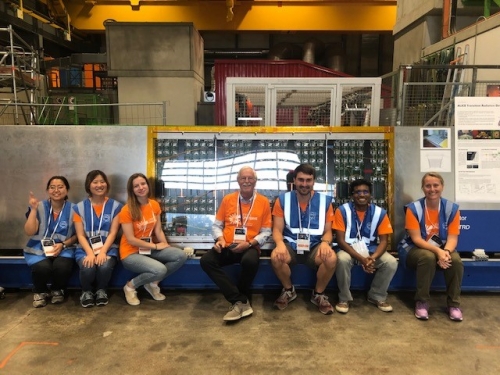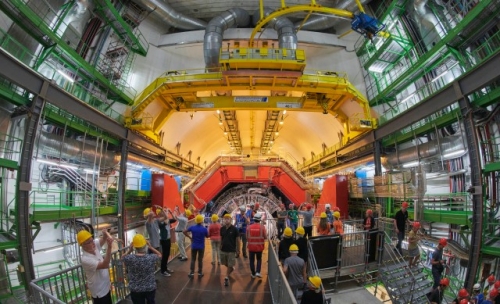Communicating Science to make it more accessible


Sameshan (second from the right) with other volunteers at CERN Open Day
Sameshan Perumal, a Masters student in the Science Faculty, recently returned from presenting his research in Switzerland at CERN Open Days with the assistance of SA-CERN and his supervisor, Tom Dietel.
Sameshan is researching the visual representation of complex data in high energy particle physics, with the assistance of his co-supervisor Michelle Kuttel. He started the project with the aim of helping scientists visualise data from the Transition Radiation Detector (TRD) – one of the detectors in ALICE. Once he started working on this project, he realised that his work could be valuable to people who are not in that field and produced a web-based interface which is accessible to anyone. His software shows cutaway views of the detector, and interprets experimental data to display the tracks followed by particles as they travel through it.
CERN Open Days take place every 5 to 6 years when the Large Hadron Collider (LHC) at CERN is shut down for upgrades and repairs. This year, over 80,000 people visited the eight sites over two days. Sameshan enjoyed the opportunity to chat with people from around the world about Science, CERN and UCT – for which he was a true ambassador. It was also a rare opportunity to guide visitors through part of the LHC ring to see the ALICE detector and equipment.

For Sameshan, an important takeaway from this unique experience, was that his display helps translate complex ideas into something that the general public can understand. Previously, past event displays were focused on communicating only with scientists, whereas now there is capacity for outreach and taking these concepts to schools.
The highlight for Sameshan was being at a world class institution where he felt proud and confident to be able to say that at UCT we are doing good work. This unusual event aligned perfectly with his research and he thoroughly enjoyed the opportunity to participate in the CERN Open Day and hopes to continue working with CERN and ALICE.
Second Master’s Degree:
Sameshan is currently completing his second Masters Degree in Machine Learning and Artificial Intelligence. His first masters degree was in the Department of Computer Science at UCT 15 years ago.
His passion for communicating science to all is reflected in his outreach involvement in AI workshops in Khayelitsha and Mitchell’s Plein, where one of the teams he mentored excelled in the competition they participated in.
Plans for the future:
Sameshan would like to start a business around data complexity visualisation where he can assist corporate clients in understanding complex data. He strongly believes that the future of Science lies in being more accessible. He says we should be thinking about the consumption of scientific research and reflect on the question, ‘Why should I care?’ Truly answering this question can communicate the value of Scientific research, particularly the idea that while pure research doesn’t necessarily have prescribed goals, many of the side effects and secondary outputs can have a direct impact on people’s lives.
